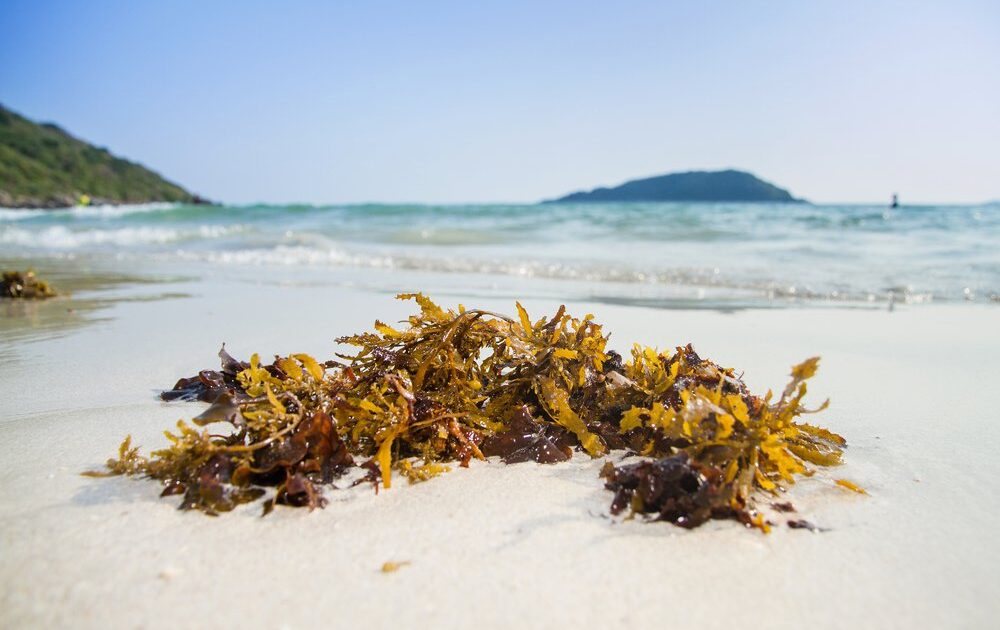6 Benefits of Using Seaweed in the Garden: From Seaweed Fertilizer to Pest Control

What’s your favorite thing about going to the beach? Relaxing with a good book while soaking in vitamin D? People watching? Collecting shells and sea glass? Now you can add collecting an all-natural garden soil amendment to that list. On the beach Mother Nature offers seaweed, which is one of the best tools for a healthy garden. Read on to learn about the benefits of seaweed for your garden.
How to collect seaweed
Collecting seaweed is as easy as walking on the beach. Couldn’t. Be. Easier.
The only supply necessary to collecting seaweed is a bag. I often use a plastic bag because that’s what I have on hand, but others use burlap bags or onion bags which are great because water can drain out.
Some folks claim that it’s best to collect seaweed that is in the mid beach area–not too close to the water or too far up the beach so that it’s dried out. I’m not so picky and I’ll take whatever I can get.
Once I grab a handful of seaweed I like to give it a shake to allow any sea critters that may be hiding to fall out.
6 Benefits of seaweed to your garden
1. Fertilizer. Seaweed has 60 trace minerals and ready-to-use nutrients including nitrogen, potassium, phosphate, and magnesium. It also contains hormones to encourage plant growth.
Unlike other garden amendments, such as manure, seaweed does not need to decompose before being a benefit to your garden.
2. Mulch. Like all mulches, seaweed helps to keep soil moist thus reducing your need to water the garden. An application of seaweed will reduce how often you need to weed. It contains no seeds that could possibly turn into weeds as bark mulch sometimes does.
Recently I’ve become aware that bark mulch can be a fire danger because it is dry and acts like kindling. Seaweed presents no such danger.
3. Pest control. Slugs especially hate seaweed because of its sharp edges and salt. Birds and other garden pests dislike it for the same reasons.
4. Improved aeration. Seaweed helps aerate the soil just like peat moss does, but it has the added benefit of delivering nutrients and minerals.
5. Prevents fungus and disease. Seaweed helps you to grow strong, healthy plants, and healthy plants resist fungus and disease.
6. Doesn’t blow away. Unlike other compost and mulches, seaweed (especially when it is still wet) won’t blow away in a stiff wind.
Concerns
Some gardeners worry about the salt in seaweed negatively impacting their garden. I can report that after years of using seaweed in my garden I have no evidence of that negative impact.
Take a moment to check your local beach’s codes before collecting seaweed. You shouldn’t run into a problem with removing seaweed from the beach because you’re not a commercial operation, but it’s best to check first.
How to apply seaweed to your garden
The only thing easier than collecting seaweed is applying it to your garden. Simply place it around plants just as you would compost and/or mulch. Use as much as you can; don’t be skimpy. Your garden beds will appreciate a generous 4-6 inch application.
Related on Organic Authority
7 Reasons Your Garden Will Love Cocoa Mulch
How to Water Plants While on Vacation (Because Dead Plants Kill Vacay Mojo)
How to Improve Your Garden Soil Naturally for the Happiest Garden on the Block
photo of seaweed on beach via Shutterstock

